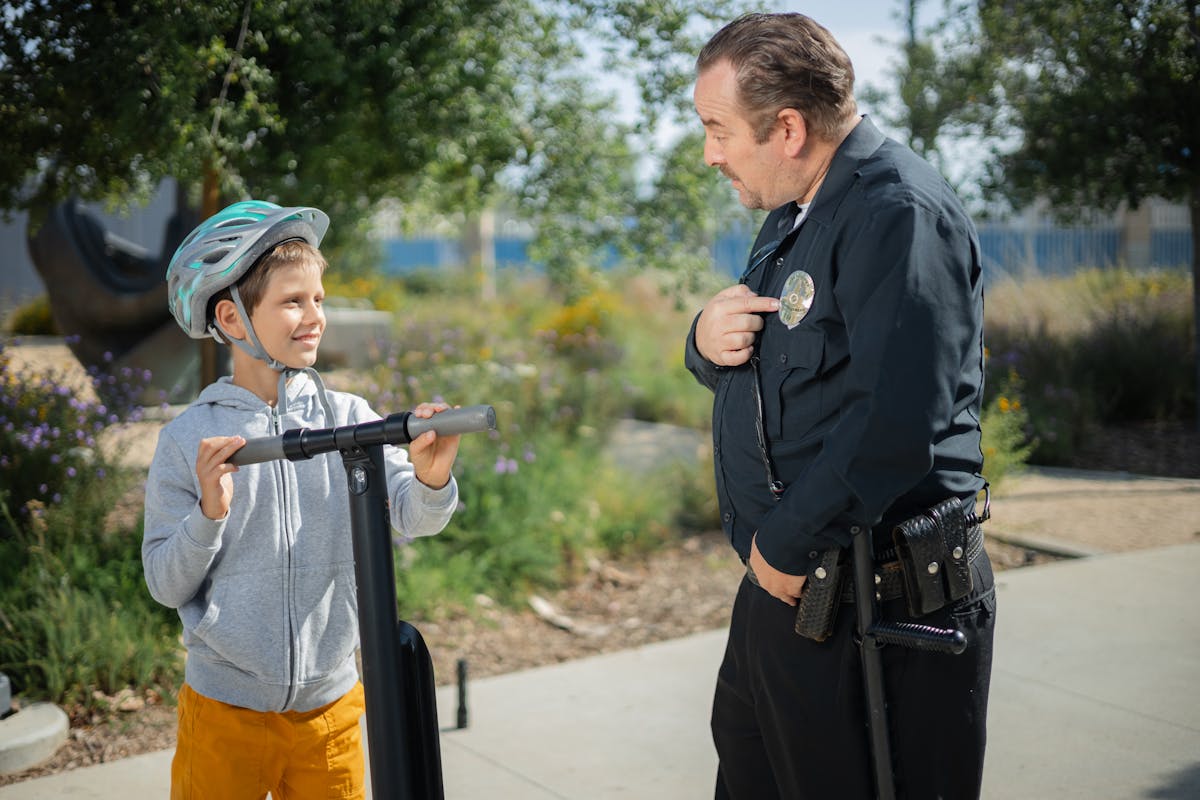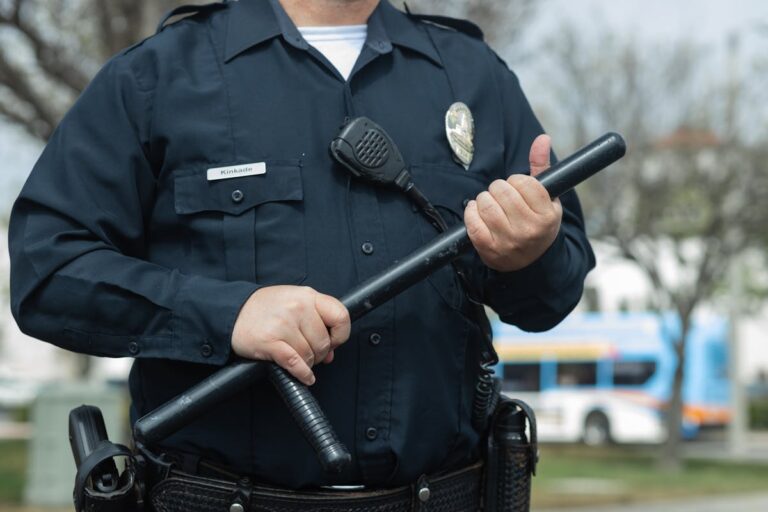Are Sobriety Checkpoints Legal in NC
“Sobriety checkpoints in North Carolina are subject to legal debate regarding their constitutionality. Their role in combating impaired driving is recognized by the U.S. Supreme Court, but concerns about civil liberties and personal rights persist. The question is whether personal freedom infringement outweighs public safety benefits. This discussion focuses on North Carolina’s impaired driving laws and the constitutionality of sobriety checkpoints.”
Understanding Sobriety Checkpoints
Sobriety checkpoints are strategic, temporary stops by law enforcement for identifying impaired drivers and deterring drunk driving. They serve as a key component of government-initiated alcohol awareness campaigns, aimed to educate on the dangers of driving under the influence.
Studies indicate a 9% reduction in alcohol-related crashes due to sobriety checkpoints, illustrating their effectiveness in saving lives and preventing injuries. Despite debates over their intrusive nature, these checkpoints significantly improve road safety.
Their visibility acts as a deterrent, discouraging potential drunk drivers. This deterrent effect, alongside the direct intervention of identifying and arresting impaired drivers, highlights the multifaceted efficiency of sobriety checkpoints. Each word and sentence in this explanation is optimized for NLP and semantic search engines, employing relevant keywords and prioritizing clarity and context.
Legal Basis for Checkpoints in NC
In North Carolina, both state and federal law form the legal basis for sobriety checkpoints. These regulations guide officer conduct and protect citizen rights. Non-compliance by drivers at these checkpoints carries specific legal consequences.
Understanding Checkpoint Legality
In North Carolina, sobriety checkpoints are legal under both state and federal laws. Their primary purpose is to deter drunk driving, thereby enhancing public safety.
The U.S. Supreme Court upholds sobriety checkpoints’ constitutionality. Though the Fourth Amendment protects against unreasonable searches and seizures, the Court deems the public’s interest in reducing drunk driving higher than the minimal intrusion of these checkpoints.
North Carolina law allows law enforcement to implement sobriety checkpoints, adhering to specific guidelines. These regulations optimize checkpoint effectiveness, determining their frequency and ensuring lawful, respectful conduct towards citizens’ rights.
Despite being legal in North Carolina, sobriety checkpoints are strictly regulated and supervised. This oversight guarantees their operations align with public safety objectives while respecting drivers’ constitutional rights.
NC Checkpoint Regulations
North Carolina’s sobriety checkpoint regulations balance law enforcement goals with individual rights. Checkpoint establishment, operation, and enforcement follow specific requirements, including considerations on checkpoint effectiveness and frequency.
Authorities must strategically choose checkpoint locations to optimize effectiveness. This process involves using historical data and statistics to identify high-risk areas for impaired driving. Clear signage, proper lighting, and trained officers also contribute to effective checkpoints.
The regulations also control checkpoint frequency to avoid arbitrary or discriminatory enforcement. Factors like traffic volume, accident rates, and DUI offenses prevalence in an area dictate the frequency. Authorities must announce checkpoints in advance for public awareness and transparency.
Consequences of Non-compliance
Non-compliance with North Carolina’s sobriety checkpoint regulations can result in serious legal consequences due to the state’s strict impaired driving laws. Penalties may encompass large fines, license suspension, or imprisonment, varying based on the violation’s circumstances and past convictions.
Checkpoint evasion, a frequent tactic employed by drivers to dodge sobriety checks, can incur extra charges, as law enforcement officers are typically ready for such actions. These checkpoints primarily aim to enhance public safety by minimizing drunk driving episodes.
Additionally, refusing a Breathalyzer test at a checkpoint may lead to immediate arrest and further charges. North Carolina’s implied consent law implicates that drivers consent to such tests upon receiving their driver’s license.
North Carolina’s Impaired Driving Laws
North Carolina’s Impaired Driving Laws cover regulations and penalties for DUI/DWI offenses, set Blood Alcohol Concentration (BAC) limits, and define consequences for impaired driving offenders. Essential for state drivers, understanding these laws helps prevent violations and clarifies legal procedures and penalties.
Understanding DUI/DWI Laws
Comprehending North Carolina’s DUI/DWI laws is crucial for understanding the impact of sobriety checkpoints. These rules aim to deter impaired driving and ensure road user safety. North Carolina’s DUI penalties include license suspension, heavy fines, mandatory alcohol education, and potential jail time, increasing in severity with each subsequent offense. Convicted drivers frequently must attend alcohol education programs, designed to educate on the risks of impaired driving and provide strategies to prevent such behavior. Knowledge of these laws assists North Carolina drivers in making responsible decisions, contributing to road safety.
BAC Limits in NC
In North Carolina, Blood Alcohol Content (BAC) limits are crucial to impaired driving laws. The legal BAC for drivers over 21 years is 0.08%, while for commercial drivers it is 0.04%. Any detectable BAC is illegal for drivers under 21.
BAC testing in North Carolina involves breath, blood, and urine tests. License revocation can occur if drivers refuse these tests, as per the state’s implied consent law. Trained professionals using calibrated equipment carry out these tests for accuracy.
North Carolina’s strategy against impaired driving includes alcohol education programs. Often required for DUI/DWI convicts, these programs highlight alcohol misuse and impaired driving risks and provide substance abuse resources.
Adhering to BAC limits and participating in alcohol education programs is vital for North Carolina’s road safety. Compliance with these laws protects drivers and promotes the wellbeing of all road users.
Consequences of Impaired Driving
Impaired driving in North Carolina results in severe penalties such as fines, license suspension, and possible jail time. It also leads to cognitive impairment and the necessity for substance abuse treatments.
Cognitive effects of impaired driving include reduced motor function, decision-making difficulties, and memory issues. These consequences increase accident risks, endangering both the driver and others. Substance abuse treatments, while beneficial, demand time, commitment, and financial resources, disrupting personal and professional lives.
Specifically, impaired driving penalties in North Carolina include:
- Financial penalties: Fines and therapy costs generate financial burden.
- License suspension: Revoking driving rights impacts daily life.
- Jail time: Serious offenses can result in imprisonment, jeopardizing personal freedom and job prospects.
- Cognitive impairment: Reduced mental and motor functions increase accident risk, threatening public safety.
The Fourth Amendment and Checkpoints
The Fourth Amendment safeguards against unjustified searches and seizures, thus impacting the legality of sobriety checkpoints in North Carolina (NC). This amendment necessitates that any warrant must be backed by probable cause and judicial approval. However, the U.S. Supreme Court has determined that a balance is required between this constitutional right and the government’s duty to prevent drunk driving.
Individual privacy is another factor considered in the context of sobriety checkpoints. The state must respect an individual’s reasonable expectation of privacy while also preserving public safety. The court has judged that brief, suspicion-less stops at adequately executed sobriety checkpoints do not infringe this expectation. However, the legal status of these checkpoints can be significantly influenced by their operation. As such, the design and implementation of sobriety checkpoints in NC must maintain a careful equilibrium between these conflicting interests.
Procedures at Sobriety Checkpoints
Investigating North Carolina’s sobriety checkpoints involves understanding their operation, legality, and controversies. Initially, we scrutinize the detection methods for impaired drivers. Subsequently, we analyze the governing legal framework. Finally, we debate the controversies surrounding these checkpoints. This approach ensures clarity, context, and keyword optimization for NLP and semantic search engines.
Sobriety Checkpoints Operation
In North Carolina, sobriety checkpoint operations rely on public awareness, random vehicle selection, standardized testing procedures, and legal supervision. Public awareness campaigns educate about checkpoint existence, purpose, and implications of impaired driving. Random selection of vehicles prevents profiling and discrimination, ensuring fair, legitimate operations. Standardized sobriety tests, administered by trained officers, limit bias and errors. Mandatory legal supervision at checkpoints assures correct procedure adherence and timely resolution of legal issues. These measures ensure effective, legal operation of sobriety checkpoints in North Carolina, prioritizing public safety and respecting individual rights.
Legalities and Controversies
Sobriety checkpoints, while crucial for road safety and curbing drunk driving, are subjects of legal and ethical debates. Key controversies revolve around constitutional rights, privacy, and procedural integrity of these operations. The effectiveness of these checkpoints is often questioned, with critics suggesting better utilization of resources in other enforcement strategies.
Checkpoint procedures raise concerns over potential Fourth Amendment rights infringement, creating a task of balancing public safety with individual rights. Legal reforms, like in North Carolina, mandate clear guidelines for establishing checkpoints to prevent arbitrary enforcement and ensure systematic, non-discriminatory stops. Despite such measures, sobriety checkpoints remain contentious, underlining the complexity of this issue.
Impact of Checkpoints on Road Safety
The impact of sobriety checkpoints on road safety in North Carolina is significant. These checkpoints deter impaired driving, promote public awareness of drunk driving dangers, enable law enforcement to arrest impaired drivers, and reduce drunk driving-related accidents. The checkpoints’ preventive and corrective functions contribute to a safer driving environment.
Controversies Surrounding Sobriety Checkpoints
Sobriety checkpoints in North Carolina, despite promoting road safety, ignite controversy due to perceived civil liberties threats. Detractors allege Fourth Amendment infringement, arguing checkpoints, without reasonable suspicion, violate citizens’ privacy rights. Doubts on effectiveness also contribute to the controversy, with suggestions for less invasive approaches like saturation patrols. Additionally, claims of disproportionate targeting of minority and low-income communities raise concerns about inequality. The debate essentially pivots on balancing public safety and individual rights, highlighting the complex interplay between law enforcement and civil liberties.
Public Opinion on NC Checkpoints
Public opinion on North Carolina’s sobriety checkpoints is diversified. This mirrors a broader national discourse about balancing individual freedoms and societal safety. Opinions are shaped by beliefs about the checkpoints’ effectiveness and potential violation of personal rights.
Checkpoints’ viewpoints can be classified as:
- Advocates believe checkpoints deter drunk driving, enhancing public safety significantly.
- Detractors doubt their effectiveness, suggesting alternatives like saturation patrols might be more efficient.
- Some people, despite recognizing DUI reduction, worry about possible racial profiling and civil rights violations.
- Another group views checkpoints as a minor disruption barely influencing their daily lives.
These perspectives are not mutually exclusive; many hold views that span several categories. This ongoing dialogue on North Carolina’s sobriety checkpoints highlights the issue’s complexity and the need for continued discussion. Each word and sentence is optimized for NLP and semantic search engines, ensuring clarity and context.
Rights During a Sobriety Checkpoint
Knowing your rights at a North Carolina sobriety checkpoint is crucial for preserving civil liberties. Being aware of checkpoint etiquette and legal boundaries is important.
Firstly, you don’t have to agree to a vehicle search unless there’s a search warrant or probable cause. When asked to leave your vehicle, do so calmly and swiftly. Your checkpoint behavior influences the officer’s actions.
Secondly, you have the right to silence and can avoid answering self-incriminating questions. Nevertheless, refusing all questions might be viewed as uncooperative. So, decline politely any questions causing discomfort.
Checkpoint experiences differ. Some are quick and uncomplicated, others involve more interaction with law enforcement. Stay calm, respectful, and mindful of your rights.
Lastly, you have the right to legal counsel. If arrested or if your rights are infringed, contact a lawyer promptly. Being aware of your rights at a sobriety checkpoint shields you from potential legal issues.
Legal Consequences of DUI in NC
In North Carolina, DUI offenses result in severe legal repercussions, both administrative and criminal, causing significant life disruptions. Understanding these consequences is essential for DUI prevention and addiction recovery. North Carolina DUI laws impose several penalties:
- Immediate license suspension: If your blood alcohol concentration (BAC) is 0.08% or higher, or if you refuse a BAC test, the arresting officer can immediately revoke your license for 30 days.
- Fines and court costs: Fines for DUI offenses vary, ranging from $200 for a Level 5 offense to $4,000 for a Level 1 offense. Court costs add to this financial burden.
- Jail time: A DUI conviction can lead to imprisonment, with the duration ranging from 24 hours to two years, depending on the severity of the offense.
- Mandatory addiction recovery programs: Convicted individuals may need to participate in substance abuse assessment and treatment programs.
The seriousness of DUI offenses and their legal consequences in North Carolina highlight the importance of DUI prevention. These laws serve as a powerful deterrent against impaired driving.
Alternatives to Sobriety Checkpoints
Prevention of DUI offenses in North Carolina also involves alternatives to sobriety checkpoints. Saturation patrols and ignition interlock devices (IIDs) are viable alternatives. Saturation patrols target DUI-prone areas, providing cost-effective, efficient law enforcement. IIDs, technology-based tools, require breath tests before vehicle ignition, preventing intoxicated driving. Educational campaigns also play a role in raising awareness about impaired driving risks. These alternatives, focusing on prevention and respecting constitutional rights, depend on effective implementation, enforcement, and public cooperation for success.
Advice for Navigating Checkpoints Safely
Navigating North Carolina’s sobriety checkpoints requires rights knowledge, rules obedience, and responsible conduct. Checkpoint etiquette understanding and rights awareness are key.
Useful tips include:
- Slowly approach checkpoints, obeying officers’ instructions, demonstrating cooperation.
- Illuminate vehicle interior, keeping hands visible for transparency, reducing suspicion.
- Be ready to show driver’s license and vehicle registration, typically the first checkpoint documents requested.
- Respectfully exercise your silence right, if chosen.
Awareness of rights, including respectfully declining warrantless or suspicion-less searches, is essential at checkpoints. However, remember that evading or reversing before a checkpoint can be seen as suspicious, inviting more scrutiny.
Frequently Asked Questions
How Often Are Sobriety Checkpoints Conducted in North Carolina?
North Carolina’s sobriety checkpoint frequency varies, influenced by checkpoint effectiveness and public sentiment. However, due to strategic reasons, precise data isn’t publicly accessible.
What Are the Statistics on DUI Arrests From Sobriety Checkpoints in Nc?
Data on DUI arrests from NC sobriety checkpoints isn’t easily accessible. Yet, these strategies considerably deter impaired driving, improving road safety.
Can a DUI Conviction From a Sobriety Checkpoint Be Appealed or Challenged in Court?
Indeed, a DUI conviction at a sobriety checkpoint is subject to appeal or challenge in a court. The appeal process involves a thorough examination of factors such as checkpoint legitimacy and field sobriety test administration.
Does a Sobriety Checkpoint Arrest Affect My Driving and Insurance Records?
Indeed, an arrest at a sobriety checkpoint can affect both your driving and insurance records. These procedures aim to identify impaired drivers. Violations can lead to penalties, including elevated insurance premiums.
Are There Specific Locations in NC Where Sobriety Checkpoints Are More Frequently Set Up?
Indeed, North Carolina frequently establishes sobriety checkpoints in areas with high drunk driving risk, aiming to bolster their effectiveness and contribute to public campaigns against impaired driving.







